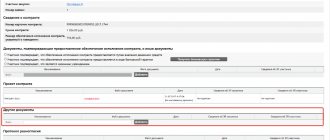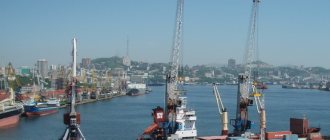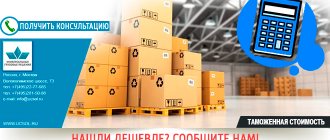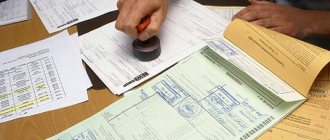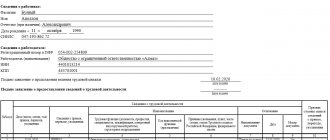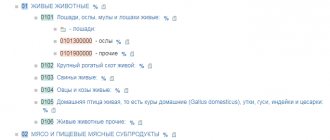Declaration procedure
The following must be declared (Article 260 of the EAEU Labor Code):
- Money in the amount of more than 10 thousand US dollars.
- Products that are subject to restrictions and prohibitions.
- Cargo delivered by a carrier or unaccompanied.
- Spare parts for cars.
- Vehicles for personal use or imported temporarily.
- Goods sent by international mail.
- Items in accompanied baggage for which taxes and duties for cross-border movement are paid or not.
Individuals may not declare goods:
- which are transported in transit through the EAC states in accompanied baggage or by plane;
- if the cost and weight of the cargo falls within the limits established by law.
A simplified procedure for declaring goods is applied when moving across the border:
- products intended to eliminate the consequences of a catastrophe, accident, natural disaster;
- living creatures (birds, animals);
- radioactive materials;
- messages for the media;
- products with a limited shelf life;
- goods to be used by the legislative, executive or judicial branches.
Simplified declaration involves presenting accompanying documents at customs, which indicate information about the goods being transported:
- origin;
- price;
- quantity;
- sender;
- carrier;
- recipient.
Advice to companies
Provide the customs representative with a set of documents and information in advance for declaring your goods. This procedure is necessary for the timely and high-quality preparation of your documents, including those that help speed up the deadlines for issuing DT.
The customs representative, as well as participants in foreign trade activities, are interested in ensuring that a customs declaration is filed as soon as possible in relation to the arrived goods, that a decision is made by customs to release the goods, and that the goods are exported.
During the monitoring of the array of customs declarations submitted by TAISU-TB, 90% of them were issued on the day of registration of the customs declaration.
Declaration of the customs value of goods
The customs value (CV) of goods imported into the Russian Federation is the value determined by the declarant and controlled by customs (Customs Code of the Russian Federation, Article 64). Used to calculate the amount of customs payment.
The procedure for declaring the customs value of goods is established in Chapter. 14 (Art. 123-138) Labor Code of the Russian Federation:
- The vehicle is declared by the declarant to the customs authority when moving goods or vehicles across the customs border. The declaration is filled out by the declarant or the broker on his behalf. All information provided must be reliable and supported by documents.
- The vehicle is determined in accordance with existing methods, the main one of which is “based on the value of the transaction with imported goods.” The declaration indicates the method for determining the vehicle and attaches the documents that served as the basis for calculating the vehicle.
Chapter 16. Release of goods and customs operations related to the release of goods
Article 105. Release of goods
1. The release of goods is carried out by customs authorities in accordance with Chapter 18 of the Union Code. 2. The federal executive body, exercising the functions of developing state policy and legal regulation in the field of customs, establishes the procedure for customs authorities to carry out customs operations related to the release of goods through the information system of customs authorities by generating an electronic document without the participation of customs officials until such a procedure is established by the Commission or in cases established by the Commission. 3. If, as a result of a check carried out through the information system of customs authorities in accordance with the procedure established by the federal executive body exercising the functions of developing state policy and legal regulation in the field of customs, in the form of an electronic document, the decision on release cannot be made using the information system of the customs authorities, then further customs operations related to the release of goods are carried out by an authorized official of the customs authority in accordance with Article 119 of the Code of the Union. 4. Customs operations related to the release of goods are carried out by the customs authority during the time specified in paragraph 1 of Article 119 of the Union Code, or upon the occurrence of circumstances specified in paragraph 3 of Article 119 of the Union Code, within one working day following the day of registration customs declaration, and in the case of filing a preliminary customs declaration - after the day of occurrence of one of the circumstances specified in paragraph 2 of Article 119 of the Code of the Union, unless otherwise established by this Federal Law. 5. In cases where one declaration for goods contains information about two or more goods, the customs authority releases goods in respect of which the release conditions are met. The declarant has the right not to remove released goods from places of temporary storage until a decision is made on the release of the remaining goods contained in the consignment. 6. The customs authority electronically notifies the person carrying out temporary storage of goods about the release of goods. Cases and timing of notification of the release of goods in accordance with paragraph 6 of Article 118 of the Code of the Union of Other Interested Persons are determined by the federal executive body exercising the functions of developing state policy and legal regulation in the field of customs affairs. 7. The procedure and cases of affixing marks on the release of goods on commercial, transport (shipment) documents or on cancellation of the release of goods on commercial, transport (shipment) documents on which marks on the release of goods are affixed may be determined by the federal executive body exercising the functions of control and supervision in the field of customs affairs. 8. Customs operations and the release of goods before filing a declaration for goods are carried out by customs authorities in accordance with Article 120 of the Union Code. 9. The federal executive body exercising the functions of developing state policy and legal regulation in the field of customs may determine other features of customs operations related to the release of goods before filing a declaration for goods, before they are determined by the Commission or in cases provided for by the Commission. 10. Before the Commission exercises the powers provided for in subparagraph 3 of paragraph 1 of Article 120 of the Code of the Union, the Government of the Russian Federation has the right to determine a list of categories of goods that can be declared for release before filing a declaration for goods, and the criteria that certain categories of legal entities importing such goods must meet persons 11. The customs authority registers an application for the release of goods before filing a declaration for goods or refuses to register it no later than one hour of the customs authority’s working hours from the moment of filing such an application in the manner determined by the Commission, and in the part not regulated by the Commission, in the manner established federal executive body exercising control and supervision functions in the field of customs affairs. 12. The form and procedure for maintaining a journal of registration of applications for the release of goods before filing a declaration for goods are determined by the federal executive body exercising the functions of control and supervision in the field of customs affairs. 13. Goods may be declared for release before submitting a declaration for goods in accordance with the customs procedure for processing in the customs territory, the customs procedure of a free customs zone, the customs procedure of a free warehouse, the customs procedure of temporary import (admission) without paying customs duties (taxes). List of categories of goods that can be declared for release before filing a declaration for goods in accordance with the customs procedure for processing in the customs territory, the customs procedure of a free customs zone, the customs procedure of a free warehouse, the customs procedure of temporary import (admission) without payment of customs duties (taxes) , can be determined by the federal executive body exercising the functions of developing state policy and legal regulation in the field of customs affairs. 14. When issuing a requirement for the declarant to present goods, the customs authority takes into account the actual location of the goods, the specifics of their declaration and movement across the customs border of the Union.
Article 106. Revocation of a customs declaration and cancellation of the release of goods
1. Cases and conditions for revocation of a customs declaration are established by Article 113 of the Union Code. 2. When submitting an application from the declarant to revoke a customs declaration, the customs authority carries out customs operations related to the registration of such an application no later than one hour of the customs authority’s working hours from the moment the application is submitted. Registration of an appeal cannot be refused. 3. When submitting an application from the declarant to revoke a customs declaration before the release of goods, the customs authority issues permission to revoke the customs declaration or refuses such a withdrawal before the release of goods. 4. When submitting an application from the declarant to revoke a customs declaration after the release of goods, the customs authority issues permission to revoke the customs declaration or refuses to revoke it no later than one working day following the day of registration of the application. In case of refusal to revoke a customs declaration, the customs authority informs the declarant of the reasons for the refusal, taking into account the provisions of paragraph 7 of Article 113 of the Code of the Union. 5. The customs authority refuses to revoke a customs declaration if the conditions for revocation established by paragraphs two and three of paragraph 7 of Article 113 of the Union Code are not met. 6. The provisions of Part 5 of this article do not apply when revoking a temporary declaration for goods filed when applying temporary periodic customs declaration of goods in accordance with Articles 102 and 204 of this Federal Law. 7. A temporary declaration for goods (temporary customs declaration) may be revoked if the goods are not actually imported into the territory of the Russian Federation or exported from the territory of the Russian Federation and before receiving the declarant’s request to revoke such a declaration, the customs authority has not established violations entailing administrative or criminal liability international treaties and acts in the field of customs regulation, legislation of the member states of the Union on customs regulation and (or) legislation of the member states of the Union, control over compliance with which is entrusted to the customs authorities related to the revoked temporary declaration for goods. 8. When revoking a customs declaration in the cases provided for in paragraphs 4 - 6 of Article 113, paragraph 9 of Article 116 of the Union Code, as well as in the case provided for in paragraph 10 of Article 116 of the Union Code, the customs authority cancels the release of goods. 9. The federal executive body exercising the functions of developing state policy and legal regulation in the field of customs, in cases provided for by the Commission, determines cases and conditions when the release of goods can be canceled by the customs authority upon a reasoned request of the declarant. 10. The procedure for carrying out customs operations related to the cancellation of the release of goods, in the part not regulated by the Commission, is determined by the federal executive body exercising the functions of developing state policy and legal regulation in the field of customs affairs.
Article 107. Submission of documents after the release of goods
1. In the cases specified in subparagraph 2 of paragraph 1 of Article 126 of the Code of the Union, if, upon release of goods, licenses, certificates, permits or other documents confirming compliance with prohibitions and restrictions cannot be presented to the customs authority, upon a reasoned request of the declarant in written or electronic form customs authorities authorize the submission of such documents in written or electronic form no later than forty-five calendar days after the release of goods. The release of goods is carried out upon presentation by the declarant in written or electronic form of an obligation to submit documents within the prescribed period. 2. Customs authorities have the right to require the declarant to submit an undertaking to comply with the restrictions established by part 1 of this article, as well as to apply seals and seals to the packaging of goods, the premises where they will be stored until receipt of documents, and to apply other measures to ensure compliance with these restrictions . 3. Customs authorities refuse to issue permission to submit documents provided for in Part 1 of this article after the release of goods if the declarant, within one year before applying to the customs authority, was held administratively liable for administrative offenses in the field of customs affairs provided for in Article 16.20 of the Russian Code Federation on Administrative Offences. 4. After the release of goods, the customs authority informs the declarant in writing or electronically of the refusal to issue permission to submit documents provided for in Part 1 of this article, no later than the day following the day of application, indicating the reason for the refusal.
Article 108. Introduction of changes (additions) to the information specified in the declaration of goods after the release of goods
1. The information specified in the declaration for goods is subject to change after the release of goods in cases and in the manner established by the Commission. (see Decision of the Board of the Eurasian Economic Commission No. 289 dated December 10, 2013) 2. Amendments (additions) to the information specified in the declaration for goods after the release of goods at the initiative of the declarant are carried out on the basis of an application for changes (additions) submitted to the customs authority ) to the information specified in the declaration for goods, or documents provided for by international treaties and acts in the field of customs regulation, if an application for amendments (additions) to the information specified in the declaration for goods is not submitted. 3. An application for changes (additions) to the information specified in the declaration for goods or documents is submitted to the customs authority where the declaration is registered. Unless otherwise established by the Commission, the federal executive body exercising the functions of developing state policy and legal regulation in the field of customs affairs has the right to establish cases in which an application or documents are submitted to a customs authority other than the customs authority in which the declaration is registered. . The customs authority carries out customs operations related to the registration of the declarant's request to make changes (additions) to the information specified in the declaration for goods, or documents submitted by the declarant to make changes (additions) to the information specified in the declaration for goods, after the release of goods later than one hour of working hours of the customs authority from the moment of filing the application or documents. 4. Unless otherwise established by the Commission, the period for consideration by the customs authority of the declarant’s request to make changes (additions) to the information specified in the declaration for goods is after their release and a decision is made on the possibility of making changes (additions) to the information specified in the declaration for goods , cannot exceed thirty calendar days from the date of registration of the appeal. 5. The customs authority considers documents on amendments (additions) to the information specified in the declaration for goods after their release within a period not exceeding three working days from the date of registration of the submission of such documents. 6. In the absence of grounds established by the Commission for refusal to make changes (additions) to the information specified in the declaration for goods, the customs authority makes a decision to make changes (additions) to the information specified in the declaration for goods in the manner established by international treaties and acts in the field of customs regulation. 7. The customs authority refuses to make changes (additions) to the information specified in the declaration for goods in cases established by the Commission. 8. No later than one working day following the day the decision was made to make changes (additions) to the information specified in the declaration for goods, or from the day of identification, based on the results of consideration, of the declarant’s request to make changes (additions) to the information specified in the declaration for goods. goods, after the release of goods on grounds for refusal to make changes (additions) to the information specified in the declaration for goods, the customs authority informs the declarant about the decision made in the form of an electronic document signed with an enhanced qualified electronic signature, using the Internet or in writing form on paper if it is impossible to provide information using the Internet. If, based on the results of consideration of the declarant's request for changes (additions) to the information specified in the declaration for goods, after their release, grounds for refusal to make changes (additions) to the information specified in the declaration for goods are identified, the customs authority, when informing the declarant, indicates the reasons which served as the basis for refusal.
Article 109. Time limits for release of goods
1. The release of goods is carried out within the time limits established by paragraphs 1 and 3 of Article 119 of the Code of the Union, unless the Commission, this Federal Law and (or) the legislation of the Russian Federation on customs regulation have established shorter terms for the release of goods. 2. The procedure for establishing a shorter period for the release of goods in accordance with Part 1 of this article is determined by the Government of the Russian Federation. 3. Extension of deadlines for the release of goods is permitted with the permission of the head (chief) of the customs body, the deputy head (deputy head) of the customs body authorized by him or persons replacing them, exclusively in cases of: 1) the need to conduct customs control in the form of checking additional documents and information, started before the release of goods on the grounds in accordance with paragraph 4 of Article 325 of the Code of the Union, until the end of such an inspection, but not more than for a period sufficient to carry out the release of goods before the expiration of their temporary storage period, including verification of documents and information with the appointment of a customs examination; 2) if the goods presented for control are not divided into packaging units by individual types and (or) names of goods and (or) information about packaging and labeling is not indicated in the commercial and (or) transport documents for the goods. Extension of the deadline for the release of goods is carried out in this case, provided that the specified circumstances do not allow the customs authorities to carry out the necessary operations to establish the conformity of the goods with information about them. The time limit for the release of goods in this case is extended by the time necessary for the person with authority in relation to the goods to divide the consignment into individual goods, and the time required to conduct customs inspection, but in such a way that the release of goods is completed by the customs authority no later than ten working days from the day following the day of registration of the customs declaration, and in the case of filing a preliminary customs declaration, after the day of the occurrence of one of the circumstances specified in paragraph 2 of Article 119 of the Code of the Union; 3) if a written application by the declarant is submitted to extend the period for the release of goods due to the need to pay customs duties and taxes, additionally calculated in accordance with the decision of the customs authority, before paying customs duties and taxes, but not more than for a period sufficient to the release of goods was completed by the customs authority no later than ten working days from the day following the day of registration of the customs declaration, and in the case of filing a preliminary customs declaration, the day on which one of the circumstances specified in paragraph 2 of Article 119 of the Union Code occurred; 4) if the declarant does not comply with the requirement of the customs authority to change the information stated in the declaration before entering such information, but not more than for a period sufficient for the release of goods to be completed by the customs authority no later than ten working days from the day following the day of registration of the customs declaration, and in the case of filing a preliminary customs declaration, the day of the occurrence of one of the circumstances specified in paragraph 2 of Article 119 of the Code of the Union; 5) if, in accordance with the provisions of the Code of the Union and this Federal Law, the release of goods can be carried out subject to the provision by the declarant of security for the fulfillment of the obligation to pay customs duties, taxes, special, anti-dumping, countervailing duties, before the provision of the specified security. 4. When extending the deadline for the release of goods, the customs authority indicates the reasons on the basis of which the deadline for the release of goods is extended.
Article 110. Refusal to release goods
1. The customs authority refuses to release goods on the grounds provided for in paragraph 1 of Article 125 of the Union Code. 2. Refusal to release goods is issued using the information system of the customs authority by generating an electronic document or by placing appropriate marks on the customs declaration on paper or on an application for the release of goods before submitting a declaration for goods submitted on paper. 3. When registering a refusal to release goods, all specific reasons that served as the basis for such refusal are indicated. 4. Customs operations related to the refusal to release goods are carried out by the customs authority before the expiration of the period for the release of goods in the manner determined by the Commission, and in the part not regulated by the Commission, in the manner established by the federal executive body exercising the functions of developing state policy and legal regulation in the field of customs affairs. 5. If the decision to refuse to release goods is considered unlawful, then upon repeated customs declaration, at the request of the declarant, the rates of customs duties, taxes, the official exchange rate of foreign currency to the ruble of the Russian Federation, established by the Central Bank of the Russian Federation, and the restrictions that were in force on the day are applied. registration of the initial goods declaration. The said application is drawn up by the declarant in any form. If the decision to refuse to release goods is recognized as unlawful after registration of a re-submitted declaration for goods or after the release of goods in accordance with such a declaration, the application is submitted to the customs authority along with an appeal submitted by the declarant in order to make changes to the information declared again in the goods declaration.
Article 111. Conditional release of goods
1. Conditionally released goods are goods in the cases established by paragraph 1 of Article 126 of the Code of the Union, as well as the following goods: 1) components of goods imported in separate consignments in unassembled or disassembled form, including in incomplete or unfinished form, in accordance with Article 117 of the Union Code and Article 103 of this Federal Law, placed under the customs procedure of release for domestic consumption; 2) other goods in cases and in the manner determined by the Government of the Russian Federation. 2. The components of the goods specified in paragraph 1 of part 1 of this article are prohibited from being transferred to third parties, including through their sale or alienation in any other way, with the exception of their transfer for the purposes of assembly, installation or storage, and are considered conditionally released until the moment of acceptance by the customs authority of a decision on the release of the last component of the goods in accordance with the declared customs procedure or making changes to the information contained in the declaration for goods in relation to components of the goods in accordance with paragraph 9 of Article 117 of the Code of the Union. 3. Documents or information confirming compliance with prohibitions and restrictions in relation to goods that were conditionally released in accordance with subparagraph 2 of paragraph 1 of Article 126 of the Union Code are submitted by the declarant in accordance with Article 107 of this Federal Law to the customs authority by which the conditional release was carried out goods. The customs authority accepts such documents or information based on the declaration of the declarant, drawn up in any form. The application indicates the number of the declaration for goods, according to which the customs authority carried out the conditional release of goods. At the request of the declarant, the customs authority is obliged to issue written confirmation of the acceptance of documents or information.
Article 112. Suspension of the deadline for the release of goods containing intellectual property objects included in the unified customs register of intellectual property objects of the Union member states or in the national customs register of intellectual property objects
1. Suspension by customs authorities of the deadline for the release of goods containing intellectual property objects included in the unified customs register of intellectual property objects of the Union member states or in the national customs register of intellectual property objects (hereinafter referred to as the customs register) is carried out in accordance with Chapter 18 and Article 384 Union Code. 2. The customs authority, at the request of the copyright holder or a person representing his interests or the interests of several copyright holders (hereinafter referred to as the representative), extends the period of suspension of the release of goods, but not more than by ten working days in the case provided for in paragraph 2 of Article 124 of the Code of the Union, and also in the event that the copyright holder (his representative) requires additional time to conduct research and examination of goods whose release date has been suspended. 3. The decision to suspend the period for the release of goods is subject to cancellation before the expiration of the period for suspending the period for the release of goods in the cases established by paragraph 9 of Article 124 of the Code of the Union, as well as if the declarant declares a customs destruction procedure in relation to goods whose release period is suspended, if any written consent of the copyright holder (his representative) to place goods under the customs procedure of destruction.
Article 113. Suspension of the deadline for the release of goods containing intellectual property objects not included in the unified customs register of intellectual property objects of the Union member states and the customs register
1. Customs authorities have the right to suspend the release of goods containing intellectual property objects not included in the unified customs register of intellectual property objects of the Union member states and the customs register if signs of a violation of the rights of the copyright holder to intellectual property objects that have legal protection on the territory of the Russian Federation are detected. , and if there is information about the copyright holder (representative) on the territory of the Russian Federation. 2. Customs authorities have the right to request from the copyright holder (representative) information necessary to exercise the powers provided for in this article. 3. The release period for goods is suspended for seven working days. The customs authority has the right to extend the specified period, but not more than ten working days, if the copyright holder (his representative) sent an application to the customs authority in written or electronic form about such an extension and submitted it to the federal executive body exercising control and supervision functions in field of customs affairs, an application for inclusion of the corresponding object of intellectual property in the customs register in accordance with Article 328 of this Federal Law. 4. Decisions to suspend the period for the release of goods and to extend the period of suspension of the period for the release of goods are made by the head of the customs authority or a person authorized by him. 5. The customs authority, no later than one working day following the day the decision is made to suspend the period of release of goods containing objects of intellectual property, notifies the declarant and the copyright holder (his representative) about such a decision, the reasons and timing of the suspension, and also informs the declarant of the name (surname , first name, patronymic (if any) and location (address) of the copyright holder (his representative), and the copyright holder (his representative) name (last name, first name, patronymic (if any) and location (address) of the declarant. 6. Declarant, copyright holder (his representative) has the right to receive from the customs authority information about goods in respect of which a decision was made to suspend the period for the release of goods, in the manner determined by international treaties and acts in the field of customs regulation. 7. With the permission of the customs authority, the declarant, the copyright holder (his representative ) have the right to take samples and (or) samples of goods in respect of which a decision was made to suspend the period of their release, including for conducting their research, as well as to inspect, photograph or otherwise record such goods. 8. The decision to suspend the period for the release of goods is subject to cancellation before the expiration of the period for suspending the period for the release of goods in the following cases: 1) if the customs authority received an application from the copyright holder (his representative) to cancel such a decision; 2) if the declarant declares a customs procedure for the destruction of goods whose release period is suspended, with the written consent of the copyright holder (his representative) for the destruction of goods. 9. The measures provided for by this article shall not be taken in relation to goods containing objects of intellectual property for which measures were previously taken in accordance with this article or were previously taken in accordance with Article 124 of the Code of the Union.
What are the terms for customs clearance?
The timing of the release of goods is determined by Art. 19 EAEU Labor Code. They range from four hours, but can be extended. There are special time limits for certain stages of the procedure:
- If, during import, the cargo is delivered to the terminal before declaration, the importer has 15 days to submit the declaration;
- inspection of goods is carried out within 24 hours from the moment they are presented by the importer;
- when submitting a declaration in advance, the importer is obliged to deliver the goods to customs within 30 days, starting from the date of its registration;
- when dividing cargo into batches, the terms are increased by the period needed to form these batches;
- cargo may remain in a temporary storage warehouse for two months if the inspector orders additional inspections. In exceptional situations, the storage period may be extended by another two months;
- if the classification according to the Commodity Nomenclature of Foreign Economic Activity is changed or the customs value is adjusted, the registration period is increased by 10 days.
The processing time may increase if inaccuracies or violations of the law are identified during document verification or inspection. Customs broker "CTT Logistics" recommends carefully checking documents, making payments on time and avoiding data distortion in order to avoid cargo delays at the border.
We also offer the following services: delivery of groupage cargo, warehouse logistics, outsourcing of foreign economic activity.
Main stages of import customs clearance
The registration procedure begins after filing the declaration. It is accompanied by a set of documents. All document flow is carried out electronically, using special programs, using the electronic digital signature of the declarant. Having received electronic documents, customs begins an inspection.
The first thing to evaluate is the correctness of filling out the declaration: all columns must contain the correct values, the declaration must be accompanied by a complete set of documents. This check is partially automated, and immediately after it begins, the customs fee is debited from the importer’s personal account for registration.
The declaration is assigned a number, after which an automatic risk check is performed. The risk management system assesses the likelihood of violation of the law. When certain risks are triggered, the inspector receives information about what additional inspection he must conduct. In addition, some additional checks are assigned randomly.
The inspector also checks the declaration manually, monitoring the following basic parameters:
- compliance of the product with the HS code assigned to it;
- compliance of customs value with statistical data for a specific group of goods;
- list of documents accompanying the declaration.
If there are signs of errors, irregularities in the preparation of documents, if the goods are described inaccurately or incompletely, the inspector conducts an inspection. If the inspection results do not reveal any violations or inconsistencies, the goods are allowed to be released into free circulation.
